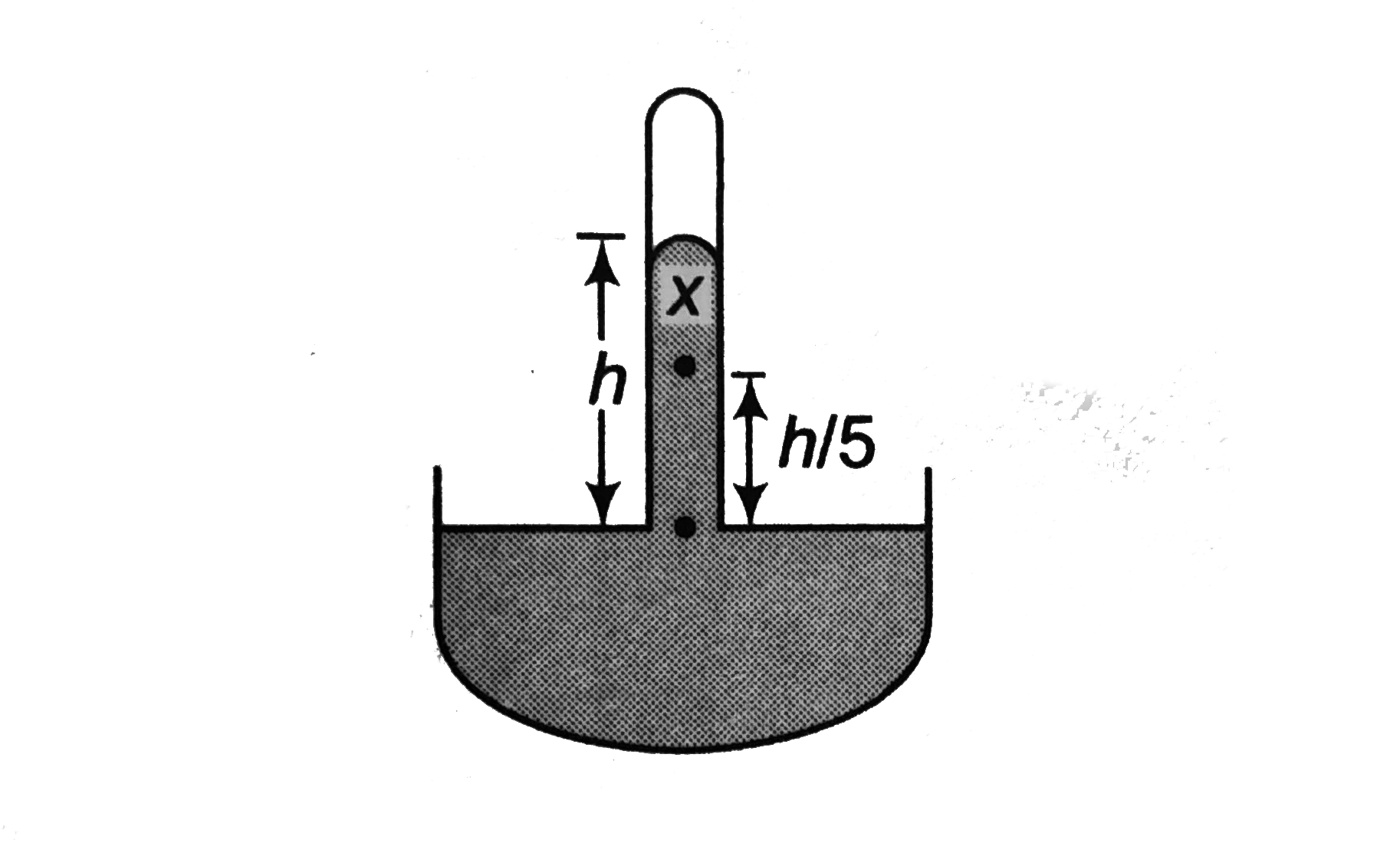Explain why does the mercury level in a barometer go down when atmospheric pressure decreases?
To explain why the mercury level in a barometer goes down when atmospheric pressure decreases, we can break down the explanation into a series of logical steps:
1. Understanding the Barometer: A barometer is a device used to measure atmospheric pressure. It typically consists of a glass tube filled with mercury, inverted in a reservoir of mercury.
2. Role of Atmospheric Pressure: The atmospheric pressure is the force exerted by the weight of air molecules in the atmosphere. This pressure acts on the surface of the mercury in the reservoir.
3. Decrease in Atmospheric Pressure: When the atmospheric pressure decreases, it means that there are fewer air molecules in the atmosphere exerting force on the surface of the mercury in the reservoir.
4. Effect on Mercury Level: With fewer air molecules above the mercury, there is less force acting downwards on the mercury surface. As a result, the weight of the air above the mercury decreases.
5. Resulting Change in Mercury Level: Because of the reduced force exerted by the atmosphere, the mercury in the tube will not be pushed up as high. Therefore, the mercury level in the barometer drops.
6. Conclusion: In summary, a decrease in atmospheric pressure leads to fewer air molecules exerting force on the mercury, causing the mercury level in the barometer to go down.
Topper's Solved these Questions
- STATES OF MATTER : GASES AND LIQUIDSBOOK - ICSECHAPTER - STATES OF MATTER : GASES AND LIQUIDSEXERCISE - ESSAY (LONG ANSWER ) TYPE QUESTIONS
10 Videos
- STATES OF MATTER : GASES AND LIQUIDSBOOK - ICSECHAPTER - STATES OF MATTER : GASES AND LIQUIDSEXERCISE - OBJECTIVE (MULTIPLE CHOICE) TYPE QUESTIONS
49 Videos
- STATES OF MATTER : GASES AND LIQUIDSBOOK - ICSECHAPTER - STATES OF MATTER : GASES AND LIQUIDSEXERCISE - VERY SHORT ANSWER TYPE QUESTIONS
20 Videos
- SOME P-BLOCK ELEMENTS BOOK - ICSECHAPTER - SOME P-BLOCK ELEMENTS EXERCISE - NCERT TEXTBOOK EXERCISES (With Hints and Solutions)
63 Videos
- STRUCTURE OF ATOMBOOK - ICSECHAPTER - STRUCTURE OF ATOMEXERCISE - NCERT Textbook Exercises
67 Videos
Similar Questions
Why mercury is used in barometer for measuring atmospheric pressure?
View SolutionAn altimeter is an aneroid barometer which makes use of the change in atmospheric pressure with the change in height above the sea level (altitude).
How does the atmospheric pressure change with increase in height above the sea level?
View SolutionAs we go high in the mountains the atmospheric pressure decreases. ___________
View SolutionA decrease in intrapulmonary pressure to less than atmospheric pressure causes
View SolutionThe column of mercury in a barometer is 76mm of Hg. Calculate the atmospheric pressure if the density of mercury = 13600kgm −3 . (Take g=10ms −2 )
View SolutionWhy does Moon have no atmosphere?
View SolutionThe height of mercury barometer is h when the atmospheic pressure is 105Pa. The pressure at x in the shown diagram is

View SolutionAs we go higher, what happens to the atmospheric pressure?
View SolutionExplain how is the height of mercury column in the tube of a simple barometer, a measure of the atmospheric pressure.
View SolutionIllustrate with the help of a lebelled diagram of a simple barometer that the atmospheric pressure at a place is 76 cm of Hg.
View Solution
